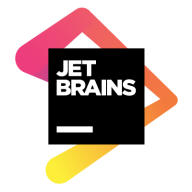


Find out what your peers are saying about GitLab, Google, GitHub and others in Build Automation.
Migrating to GitLab is bringing time-saving benefits, and everything is easier to automate.
We have saved time significantly, reducing deployment time from four hours to five minutes per deployment.
We have rarely needed to escalate issues to technical support since GitLab usually runs seamlessly.
I have interacted with architects for some advice during the implementation, and they were prompt in their response.
I have had meetings where they taught me, explained things, and provided guidance for starting from scratch.
It has all the features required for our coding and deployment needs, which makes it scalable to our changing requirements.
We're transitioning to OpenShift for future scalability with increased user numbers.
For scaling, other deployment options from GitLab's side need to be adopted.
I have not encountered any performance or stability issues with GitLab so far.
The updates are frequent and demanding, happening at least once a week due to security reasons.
We raised a request with GitLab support, but they were unable to help because they could not find the root cause of what went wrong.
It would be beneficial to have a user-friendly interface for setting up these configurations, instead of just writing YAML files.
It is essential to conduct proper testing, such as unit tests and code coverage, within the SDLC pipelines.
GitLab can improve its user interface to make conflict resolution more user-friendly.
Even when working in other small organizations, we opted for GitLab as it was cost-efficient.
The pricing of GitLab is reasonable, aligning with what I consider to be average compared to competitors.
The price is high, and it limits user accessibility.
As we implement automated testing and DevSecOps, it speeds up the process by forty to sixty percent.
The Ultimate version offers enhanced features for security scanning through DAST and SAST analysis, which have greatly benefitted our project workflow.
By integrating GitLab as a DevOps platform, we have enhanced agility, improved our time to market, and different teams can work collaboratively on various projects.
| Product | Market Share (%) |
|---|---|
| GitLab | 12.6% |
| Bamboo | 5.3% |
| TeamCity | 6.7% |
| Other | 75.4% |



| Company Size | Count |
|---|---|
| Small Business | 7 |
| Midsize Enterprise | 6 |
| Large Enterprise | 9 |
| Company Size | Count |
|---|---|
| Small Business | 35 |
| Midsize Enterprise | 9 |
| Large Enterprise | 42 |
| Company Size | Count |
|---|---|
| Small Business | 11 |
| Midsize Enterprise | 4 |
| Large Enterprise | 15 |
GitLab offers a secure and user-friendly platform for CI/CD pipeline management, code repository control, and collaboration, enhancing development speed and efficiency. It facilitates automation with extensive customization and tool integration, ideal for DevOps processes.
GitLab supports source code management, version control, and collaborative development. It's frequently used in CI/CD processes to automate builds and deployments while integrating DevOps practices. GitLab allows companies to manage repositories, automate pipelines, conduct code reviews, and maintain development lifecycles. The platform supports infrastructure and configuration management, enabling efficient code collaboration, deployment automation, and comprehensive repository handling. Many organizations commit and deploy developed code using GitLab's capabilities.
What are GitLab's most valuable features?In specific industries, GitLab serves as a backbone for source code management and CI/CD implementation. Companies leverage its capabilities for infrastructure management and deployment automation, thus streamlining project delivery timelines. Its ability to handle configuration management and code repositories effectively aids in maintaining development lifecycles, making it a preferred choice for organizations committed to enhancing their DevOps practices.
TeamCity is a Continuous Integration and Deployment server that provides out-of-the-box continuous unit testing, code quality analysis, and early reporting on build problems. A simple installation process lets you deploy TeamCity and start improving your release management practices in a matter of minutes. TeamCity supports Java, .NET and Ruby development and integrates perfectly with major IDEs, version control systems, and issue tracking systems.